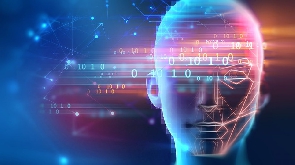AI or machine intelligence (MI) is intelligence displayed by machines, in contrast with the natural intelligence (NI) displayed by humans and other animals.
AI is the ability of a digital computer or computer-controlled robot to perform tasks commonly associated with human beings.
But AI is also regarded as the disruption technology. Why and how that is, read more below:
Disruption. AI, as with preceding technological revolutions, will be disruptive to organisation models, processes and norms.
Displacement. Again, as with earlier revolutions, some categories and occupations will be permanently displaced and need to find new ways to stay economically relevant. The distinctiveness is that the affected workers will include the skilled and well educated who historically had high barriers to entry and thus a competitive moat to protect their employment.
Deep. AI will impact not just horizontally but vertically in the economy. Every level will be affected in some way and to some degree. No worker or firm will be excluded.
Demand. New jobs will be in demand but these are likely to be niche with high barriers to entry. But demand for "high touch" jobs such as manual work, "hands on" professions from plumbing to engineering, healthcare, social services and senior leadership roles (to keep the "human in the loop") will remain valid.
The jobs that remain in demand will be repriced in the market to attract a premium. So, these historically lower-end anchored incomes will become "unmoored" and migrate up the income ladder.
Returns on education will actually fall as the payoffs from every added year of higher education in most subjects/fields diminish due to AI ascendancy.
Productivity will be significantly boosted as deployment of AI cuts structural costs and improves outcomes. But the margins are going to be narrowly captured.
This will mean that capital owners will get even wealthier while many workers are displaced and the wage bargaining power of most others reduced.
Inequality will thus become acute. And consequently, State redistribution and investment in public infrastructure ever more important. This will mean radical structural changes to fiscal and social systems.
Singapore has no choice but to run fast to be at the "bleeding edge" of the AI revolution. Using its nimbleness as an advantage it can widen the competitive gap with regional peers. They will also find it harder to ride this wave given their size and weaker infrastructure. The initial margin can thus become entrenched as capital owners back policy direction, industry conviction and economic momentum.
Finally, the revolution is already happening and will continue to pick up momentum quickly. It will move faster than policies, regulations and even politics.
This should be the occasion for many workers to pause and think about their exposure to AI and to rethink, if necessary, their career choices and direction in order either invest in new skills or to change course into more resilient occupations.
Change will come and it has our names written all over it.
The writer, Ebenezer Denzel Amanor, writes for www.surveillanceghana.com
General News of Friday, 17 November 2023
Source: Ebenezer Denzel-Amanor, Contributor

















